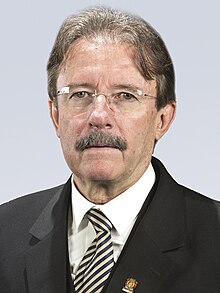
Yerko Martín Núñez Negrette is a Bolivian agronomist and politician who served as minister of the presidency from 2019 to 2020. A member of the Social Democratic Movement, he previously served as minister of public works from November to December 2019. Throughout his ministerial tenure, Núñez was noted as a key person of influence in the transitional government and a "right-hand" to President Jeanine Áñez, a fellow Beni native. Prior to his appointment, he served as senator from Beni from 2015 to 2019 on behalf of the Democratic Unity coalition. As a member of Beni First, Núñez served as mayor of Rurrenabaque from 2010 to 2014; he previously held the position for two terms from 2000 to 2003 and 2005 to 2010 as part of the Revolutionary Nationalist Movement. Núñez's mayoral tenure saw strides made for Rurrenabaque's ecotourism industry, which generated increased economic growth for the city.

Betty Asunta Tejada Soruco is a Bolivian ecologist, lawyer, and politician who served as president of the Chamber of Deputies from 2013 to 2014. A member of the Movement for Socialism, she served as party-list member of the Chamber of Deputies from Santa Cruz from 2010 to 2015. Prior to that, she served in the same position from 2002 to 2006 and as a substitute party-list member of the Chamber of Deputies from Santa Cruz under Roberto Landívar from 1997 to 2002, on behalf of the right-wing populist New Republican Force.

María Elva Pinckert Vaca is a Bolivian businesswoman, lawyer, and politician who served as minister of environment and water from 2019 to 2020. Pinckert developed her career in Santa Cruz's agro-industrial heartland, during which time she rose to key positions of regional economic and political influence, including presiding over the Montero Civic Committee and serving as vice president of the Santa Cruz Chamber of Industry and Commerce. Elected to the Montero Municipal Council as a member of the Revolutionary Nationalist Movement in 1999, Pinckert later switched to the New Republican Force, with which she won reelection. In 2009, the party promoted her to the Senate as a substitute senator under Germán Antelo. Amid the disunity brought about by the fragmentation of her parliamentary caucus, Pinckert aligned with the Social Democratic Movement, which nominated her for a full Senate seat. Elected in 2014, Pinckert held office until 2019, when she joined the Áñez administration as head of environmental and water policy. As with many former Áñez ministers, Pinckert faced judicial consequences for her collaboration with the transitional government, leading her to seek refuge in Brazil less than a year after leaving office.

Osney Martínez Daguer is a Bolivian agronomist, politician, and rancher who served as a party-list member of the Chamber of Deputies from Beni from 2010 to 2015. Born to a wealthy family from San Borja with political links to the Revolutionary Nationalist Movement, Martínez spent most of his career in local administration, starting as a substitute member of the city's municipal council before being twice elected to a full seat on the body.

Herbert Salvatierra Becerra is a Bolivian lawyer and politician who served as a member of the Chamber of Deputies from Pando, representing circumscription 66 from 2010 to 2015. Salvatierra pertains to a generation of conservative parliamentarians who entered the political arena in the heat of the conflicts of the late 2000s, agitating for regional autonomy for the eastern departments and pushing for the rejection of the new, progressive Constitution ratified during the first Evo Morales administration. Polarization over these issues reached its breaking point in Pando, resulting in the Porvenir massacre, which dealt a heavy blow to the department's opposition-controlled prefecture and civic committee. In the aftermath, Salvatierra was propelled to the presidency of the reconstituted Pando Civic Committee, remaining an ally of the department's jailed prefect, Leopoldo Fernández, for the duration of his political career.
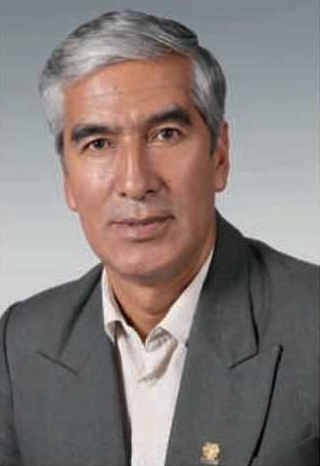
José Félix Mendieta Villarroel is a Bolivian politician and trade unionist who served as a member of the Chamber of Deputies from Cochabamba, representing circumscription 28 from 2010 to 2015.

Carol Mireya Montaño Rocha is a Bolivian lawyer, politician, and trade unionist who served as a member of the Chamber of Deputies from La Paz, representing circumscription 11 from 2015 to 2020. A member of the Movement for Socialism, Montaño entered politics as head of the party's youth wing in El Alto, later serving as secretary of organization of the Federation of Neighborhood Councils. Her party's alliance with El Alto's neighborhood councils facilitated Montaño's entry into the Chamber of Deputies. In 2009, she was elected as a substitute deputy representing La Paz's circumscription 14 and in 2014, she became one of the few ruling party parliamentarians to be presented for reelection, this time for a full seat.

Farides Vaca Suárez is a Bolivian librarian and politician who served as a member of the Chamber of Deputies from Beni, representing circumscription 62 from 2010 to 2015.
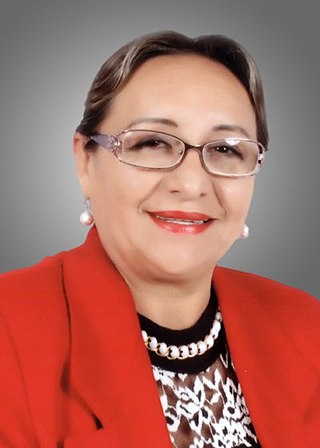
Irma Herminia Ledezma Tambo is a Bolivian businesswoman, politician, and rancher who served as a member of the Chamber of Deputies from Beni, representing circumscription 61 from 2015 to 2020. Ledezma spent most of her professional career in the business of commerce and cattle ranching, two sectors vital to Beni's regional economy. She entered politics as a member of the Social Democratic Movement, representing the party in the Chamber of Deputies and serving as head of its Guayaramerín branch until 2020 before retiring upon the completion of her parliamentary term.

Tito Veizaga Cossío is a Bolivian cocalero activist, politician, and trade unionist who served as a member of the Chamber of Deputies from La Paz, representing circumscription 17 from 2015 to 2020. A member of the Movement for Socialism, Veizaga followed the usual path taken by rural union leaders, scaling the ranks of trade syndicate leadership until reaching the departmental level. In 2004, he was elected to serve as mayor of Cajuata, and though he failed in his attempt at reelection in 2010, he maintained a presence in his party's internal structure. In 2014, Veizaga was elected to represent the Yungas region in the Chamber of Deputies. Though many local cocaleros opposed the government's attempt at regulating their crop, Veizaga held the party line, supporting the passage of the 2017 General Law of Coca. He was not nominated for reelection.

Felipe Molloja Báez is a Bolivian politician and trade unionist who served as a party-list member of the Chamber of Deputies from Potosí from 2010 to 2015. Raised in rural poverty, Molloja developed his career within the Omiste Province's trade union structure, holding leadership roles in various local, provincial, and regional agrarian and peasant syndicates. In 1999, he joined the ranks of the newly founded Fearless Movement, with whom he competed for the Villazón mayoralty in 2004, taking second place and attaining a seat on the municipal council. For the 2009 general elections, as part of his party's alliance with the Movement for Socialism, Molloja was elected to represent Potosí in the Chamber of Deputies. Within months of taking office, the Fearless Movement split with the ruling party, with Molloja joining his compatriots in forming a small breakaway caucus in the lower chamber.
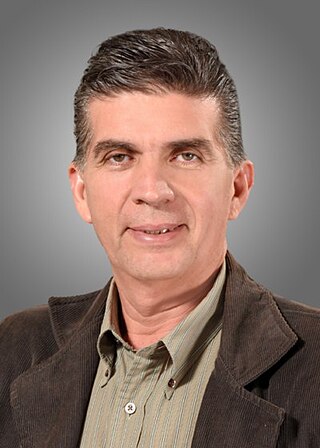
Miguel Santa Lucía Ojopi Sosa, often referred to as Yaco, is a Bolivian businessman and politician who served as a party-list member of the Chamber of Deputies from Pando from 2015 to 2020. A member of the Revolutionary Nationalist Movement, Ojopi entered politics as the party's departmental leader for Pando. In 2006, he was elected to serve as a party-list member of the Constituent Assembly for Pando from 2006 to 2007. After unsuccessfully contesting the Cobija mayoralty in 2010, Ojopi was elected to represent Pando in the Chamber of Deputies. As with other Revolutionary Nationalist Movement deputies elected as part of the Democratic Unity alliance, Ojopi split with the coalition shortly after assuming office, composing part of a quaternary opposition caucus in the lower chamber for the duration of his term.
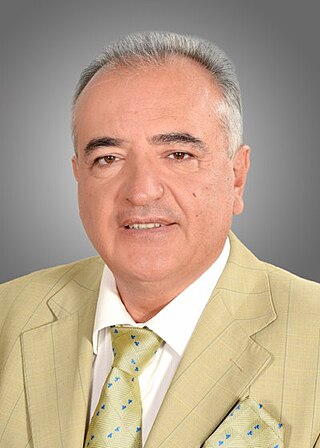
Miguel Ángel Feeney Parada is a Bolivian businessman, lawyer, and politician who served as a party-list member of the Chamber of Deputies from Santa Cruz from 2015 to 2020. As with many members of Santa Cruz's upper-class economic elite, Feeney's career began in the department's agribusiness sector before moving on to public service. Originally a partisan of Nationalist Democratic Action, Feeney switched allegiances to the National Unity Front in the mid-2000s, serving as the party's departmental leader for Santa Cruz. In 2006 and 2009, respectively, he unsuccessfully sought to be elected to the Constituent Assembly and the Chamber of Deputies before finally attaining the post of deputy in the 2014 election.

Saúl Octavio Lara Torrico is a Bolivian lawyer, jurist, and politician who has served as a party-list member of the Chamber of Deputies from Cochabamba since 2020. A member of Civic Community, he previously served as vice minister of the interior from 2003 to 2004 and as minister of government from 2004 to 2005. A graduate of the Higher University of San Simón, Lara spent much of his career as a legal advisor and consultant for various public and private institutions and corporations. From 1993 to 1997, he served as chief of staff to Foreign Minister Antonio Araníbar, during which time he joined the minister's party, the Free Bolivia Movement, of which he was secretary of finance. Appointed to head the Ministry of Government in 2004, Lara developed a lasting personal friendship with then-president Carlos Mesa, aiding his 2019 campaign to return to the presidency. The following year, he joined Civic Community's electoral list in the Cochabamba Department, netting a seat in the Chamber of Deputies in the 2020–2025 Legislative Assembly.
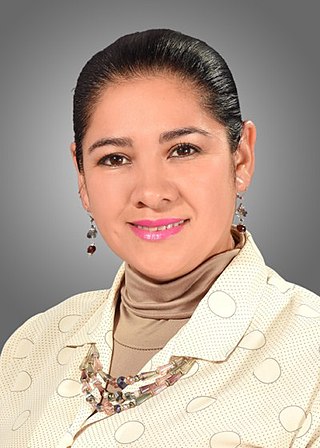
Kary Mariscal Guzmán is a Bolivian schoolteacher and politician who served as a member of the Chamber of Deputies from Santa Cruz, representing circumscription 54 from 2015 to 2020. A member of the Revolutionary Nationalist Movement, Mariscal spent much of her life working in education, only entering the political field in 2010 with her election as a substitute member of her city's municipal council.

Orlando Egüez Algarañaz was a Bolivian lawyer and politician who served as a member of the Chamber of Deputies from Beni, representing circumscription 60 from 2015 until his death in 2019. A member of the Revolutionary Nationalist Movement, Egüez practiced law in Riberalta before making the jump into politics. Elected to the Chamber of Deputies in representation of the Democratic Unity coalition, he joined other members of his party in breaking away from that caucus once in office. Although the move garnered Egüez some high-up committee positions, a 2016 cancer diagnosis impeded his ability to legislate, and he died in office three years later.

Fernando Campero Paz is a Bolivian economist and politician who served as substitute senator for Tarija from 2015 to 2020. He previously served as general manager of the Central Bank of Bolivia and the Bolivian Stock Exchange during the administration of Jaime Paz Zamora.
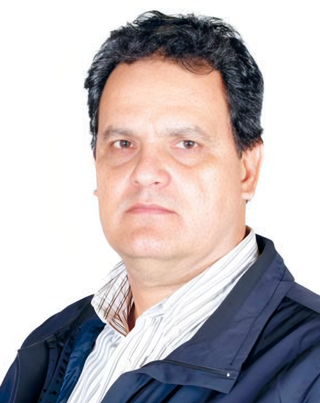
Carlos Alberto Sonnenschein Antelo is a Bolivian businessman, politician, and rancher who served as senator for Beni from 2010 to 2015. A member of the Revolutionary Nationalist Movement, he previously served as a member of the Chamber of Deputies from Beni, representing circumscription 64 from 2002 to 2010.

María Gardenia Arauz Menacho is a Bolivian politician and trade unionist who served as a substitute member of the Chamber of Deputies from Beni, representing circumscription 63 from 2010 to 2014.
